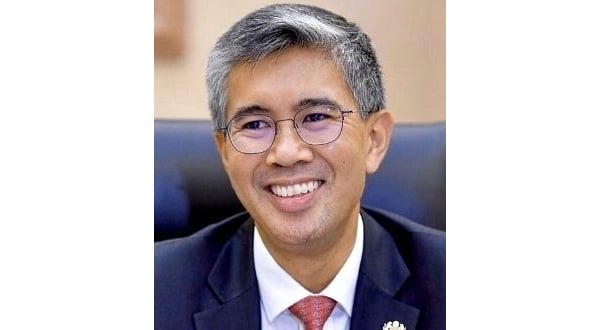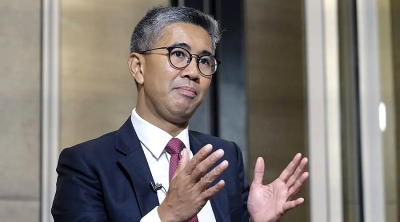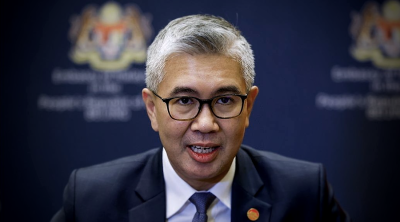
The foundations for the Malaysian economy’s next take-off have been laid with Prime Minister Datuk Seri Anwar Ibrahim launching the “Ekonomi Madani: Memperkasa Rakyat” economic framework on July 27, 2023.
Its mission to elevate Malaysia’s economy is very clear.
While it was expected that the plan would be responsive to rakyat’s current challenges, such as the rising cost of living, commendably it also attempts to fix structural issues, such as the relatively slower growth in wages.
The PM has set seven bold goals, including making Malaysia one of the 30 largest economies of the world, as well as in the top 12 on competitiveness and ease of doing business, with annual economic growth exceeding 6% and budget deficits lower than 3% of GDP.
As I am helming the Ministry of Investment, Trade, and Industry (MITI), I was excited to note that a large part of the measures announced are within MITI’s portfolio, and we do not even mind the large amount of work ahead!
NIMP 2030 a key success factor for economic transformation
A major plank of the Ekonomi Madani is the New Industrial Master Plan (NIMP) 2030, which we are currently finalizing for the PM to launch in August.
The outward-looking NIMP will seek to reverse Malaysia’s premature de-industrialization and being trapped in lower-value processes in the global value chain.
A key success factor is the NIMP’s shift away from a sectoral focus, and towards the prioritization of four national missions i.e., advancing economic complexity, tech-up for a digitally vibrant nation, push for net-zero and safeguarding economic security and inclusivity.
Being mission-based means that all industries can thrive without “blue-eyed sectors” being prioritized. Instead, the rising tide will lift all boats— in all sectors, and all business sizes, big or small.
With a strong focus on strengthening existing linkages, and developing new industrial clusters, we have clear plans to incorporate more SMEs into higher-value supply chains, which in turn increases labor productivity, and wages.
This will also need a strong commitment from industry players to do their part by doing what is right by their workers.
Many investors in the industrial sector have personally told me that they really do not mind paying better wages progressively, provided productivity also rises.
Indeed, there must be a buy-in from all the different actors in the economy, to look beyond corporate earnings but also consider their contribution to the longer-term socioeconomic well-being and broader national interest.
Ultimately, the creation of a larger middle-class with strong spending power will boost domestic consumption, generating the much-needed broad-based economic growth to make us a higher-income nation.
Strengthening investment infrastructure; capitalizing on regional opportunities
Ekonomi Madani seeks to establish Malaysia as a leading global investment destination. Work is underway to upgrade industrial areas with “greener” infrastructure to support our net zero target by 2050, given that the industrial sector is a key contributor to carbon emissions.
We will also need to ramp up our investment promotion to compete aggressively for capital, even as we pair investment incentives with conditions such as generating a minimum number of high-income jobs.
In fact, MITI had already started working on many initiatives to improve the investment landscape.
A key initiative is by making the Malaysian Investment Development Authority (MIDA) the main investment promotion agency to ensure more streamlined interactions with investors.
We are also putting in place dashboards to monitor KPIs for both FDI and DDI, as well as KPI’s for easing the investor’s journey.
Thus far, we have attracted more than RM71.4 billion in approved investments in 1Q2023, almost 60% higher compared to 1Q2022.
In our Asia-focused trade and investment missions in 1H2023, we have generated more than RM230 billion in potential investments and almost RM10 billion in prospective trade.
The Ekonomi Madani plan rightfully recognizes that Malaysia must integrate itself more fully into Asean and seek to become one of its leading economies.
This requires adroit trade diplomacy and developing more local companies to penetrate the Asean market.
Via the NIMP, we will improve the value-add for sectors like E&E, and welcome the Madani measure to nurture Penang’s E&E beyond lower value Outsourced Semiconductor Assembly and Test (OSAT), and towards more on high-value industries such as IC design.
FDI vs DDI? We love both!
What is equally game-changing in the plan is that domestic direct investment (DDI) is now also a KPI for Malaysia’s investment performance.
I have long argued that DDI is as important as Foreign Direct Investment (FDI). Having a healthy mix can help to preserve our economy from external shocks like geopolitical uncertainty and disrupted supply chains.
Stronger DDI participation by GLICs and GLCs will also help develop new target sectors – aerospace, digital economy, chemicals, E&E and pharmaceutical – that enhance Malaysia’s economic complexity and global competitiveness.
In my opinion, nothing spells confidence in a country and its future better than its own domestic investors ploughing their funds back into the country. In effect, DDI is a vote for Malaysia by Malaysians!
Attracting and nurturing high-skilled talent
To achieve industrial transformation, high-skilled talent in key.
Competition for talent has become fiercer, and only countries that have a reliable pool of highly-skilled human capital will come out on top.
Hence, another noteworthy focus of the Ekonomi Madani concept is its proposed reinforcement of Malaysian talent pipelines by ensuring that national education—including TVET—becomes demand-driven and responsive to industry.
For the short-term, however, I am also confident investors welcome the special financial zone in Johor to attract global investors and knowledge workers to reside in Malaysia.
We have also begun our bid to attract global talent through a special immigration facility for strategic investors and nomad workers in the manufacturing sector i.e., via the Strategic Investor Pass and the DE Rantau Digital Nomad Pass.
Meanwhile, we also welcome improvements to the Malaysia My Second Home (MM2H) and Visa-On-Arrival facilities.
Propelling the next economic take-off
Overall, the Ekonomi Madani framework and NIMP 2030 give us a sense of mission, purpose and urgency, because what is really at stake is the nation’s survival rather than political careers.
The building of Ekonomi Madani will take time and I am sure there are many more measures via Budget 2024, but the recent announcement is surely a solid bridge to the future.
MITI will give its utmost to support the mission to elevate Malaysia’s economy by raising the floor of stronger social protection; and raising the ceiling to accelerate growth, to make our beloved country a dominant economic force in Asia.
All of us must play our role and it is time we get down to business and propel the Malaysian economy towards even greater heights. So, buckle-up, Malaysians, and get ready for our next economic take-off!
(Tengku Zafrul Tengku Abdul Aziz is the Minister of Investment, Trade and Industry, Malaysia.)
ADVERTISEMENT
ADVERTISEMENT







































